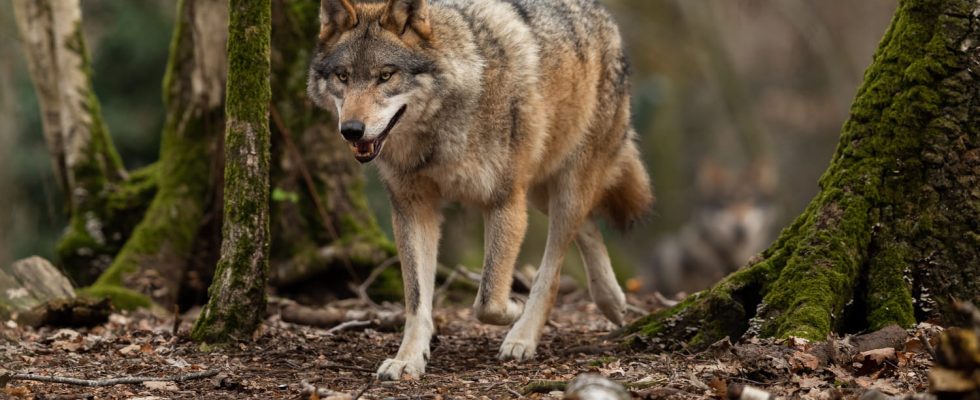The conditions for shooting against wolves which threaten agricultural livestock will be “simplified” in accordance with the requests of the FNSEA, the government announced.
“We will have a shooting order […] simplified in accordance with the requests of many breeders” by the end of the week, promised the Minister of Agriculture, Marc Fesneau, on Wednesday February 21. Behind this decree, it is the practice of shooting wolves which will be facilitated within the framework of the “wolf plan” for the period 2024-2029. The final version of this plan, modified after having been deemed insufficient by breeders and criticized by environmental organizations, provides for the possibility of mobilizing two shooters, or even three exceptionally and with authorization from the prefect, on shooting to defend a flock against a wolf. Only one shooter is authorized for the moment.
Only wolf scouts, volunteers responsible for wildlife management, will remain authorized to practice these defensive shots. They are also the only ones who can use specialized equipment such as thermal scopes to hunt wolves. Not only to be able to be more numerous to carry out defensive shots, the wolf scouts must be “more available”, “more mobile” and “more effective” according to the plan. To this end, it is planned that the prefects of each department, in particular the sixty affected by the presence of the wild animal, can designate wolf scouts specifically responsible for managing authorized shooting of wolves. The shooting protocol will also be simplified with the end of the obligation for wolf scouts to light the animal before shooting.
A “very bad” signal for the defense of the environment
By announcing such simplification measures for wolf shooting, the government is responding to requests from the FNSEA, the main agricultural union, which complained about too many animals attacked by wolves on farms. But this wolf plan arouses the anger of environmental associations and organizations which denounce and regret a “very bad” signal with the facilitation and the increase of third parties in 2023. “It will absolutely not solve the problem” according to Sandrine Bélier who represents the Humanity and Biodiversity association and contacted by theAFP. “Worse, it risks even making it worse by dispersing the packs, which will lead to more attacks by lone wolves” added Cédric Marteau, general director of the League for the Protection of Birds, to the press agency.
The policy on wolf shooting is not justified for Jean-David Abel of France Nature Environnement (FNE) who assures franceinfo that despite the “fairly significant” development of the wolf population in recent years, “the damage [sur les élevages] have been stagnant for six years. Last year again, they even fell.” The environmental defender understands the simplification of shooting even less as, according to him, it is not the most effective method for avoiding attacks in comparison with “dogs protection, electric fences and human presence”: “It is the dogs who are first and foremost the most effective. [Ils] do 90% of the work.
Wolves, another hope in danger?
Wolves are still considered a protected species, as their conservation is threatened despite their observed return to the Alps and other territories for thirty years. “Contrary to what the Minister of Agriculture says, the good state of conservation is absolutely not proven in France” insists Jean-David Abel who believes that the wolf plan will “especially [conduire] to kill more wolves.
More than 1,100 wolves were recorded in France during the last count by the French Biodiversity Office in 2023. But this number would be underestimated according to breeders who blame wolves for the attacks on 12,000 livestock in 2022. These thousand wolves, the plan in force makes it possible to kill 209, or 19% of the total population. However, a regulation of the wolf population seems necessary, according to the proposals of Nicolas Jean, specialist in large predators at the French office for biodiversity, reported by franceinfo, who judges the animal is able to resettle throughout France by 2045 or 2050.
